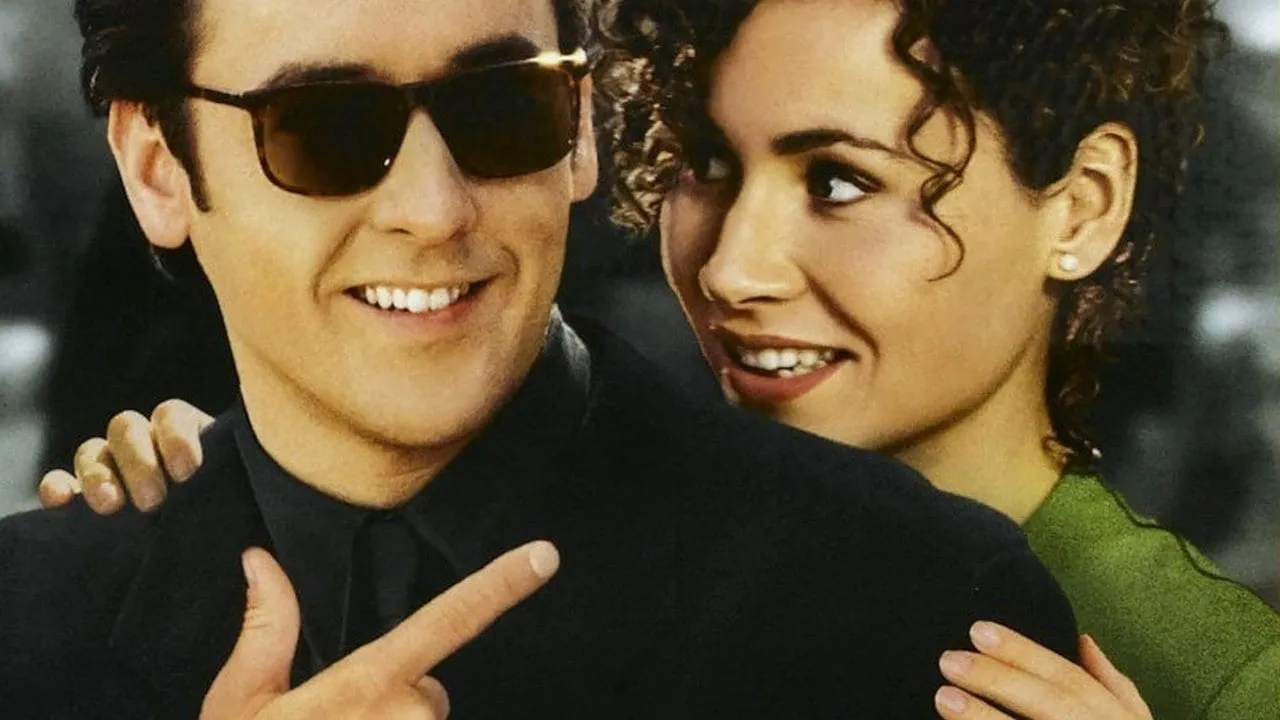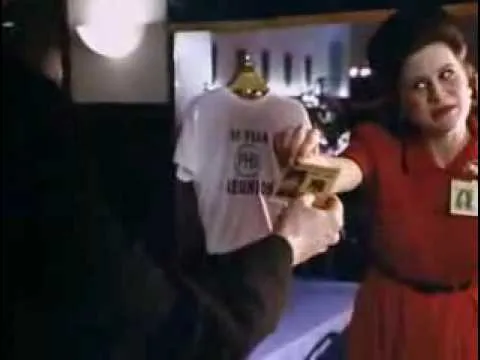
Banality of evil - phrase coined by Hannah Arendt in order to describe seemingly ordinary nature of people responsible for Holocaust - is banned among Hollywood screenwriters. The only evil Hollywood can show is extraordinary evil, either fuelled by madness or committed by extraordinarily people as far away from resembling regular people as possible. This rule is, like any other rules, broken or twisted, so there are films that occasionally show evil or morally questionable people having ordinary lives and ordinary problems. One of such examples and in case of Grosse Pointe Blank, 1997 black comedy directed by George Armitage.
Protagonist of the film is Martin Q. Blank (played by John Cusack), professional assassin who, despite short but immensely successful career, suffers from something resembling mid-life crisis and visits therapist Dr. Oatman (played by Alan Arkin). When he receives invitation for the ten-year high school reunion, it takes not just advice from Dr. Oatman and his faithful secretary Marcella (played by Joan Cusack), but also convenience of his latest assignment being nearby for Blank to decide and go to his home town of Grosse Pointe, Michigan. Once he gets there, he sees that he is being shadowed by NSA agents and rival assassin Mr. Grocer (played by Dan Aykroyd). But the biggest issue for Blank is Debby Newberry (played by Minnie Driver), girl who he had inexplicably stood up on the senior prom ten years ago.
John Cusack, main star and co-writer of Grosse Pointe Blank, has built his reputation in 1980s teen comedies and the script for this film, by building the story around 10-year high school reunion, takes approach that is both nostalgic and sarcastic towards that period. Ultra materialism of that decade is recurring theme throughout the film and most humour comes from the way those values are applied in 1990s. The script, written by Cusack and three more people, is both serious and funny, but it couldn't have worked without Cusack in the main role. He makes the lead character of an assassin convincing and the audience is quickly absorbs his point of view, taking his violent and morally questionable profession as something quite normal. That works in the end of the film when Blank, who is supposed to be the most freakish of all former students, turns out to be more normal and down-to-earth than his classmates.
Unfortunately, excellent concept of this film is ruined by adding romantic subplot. Perhaps stories about frustrated assassins could mix with romantic comedies, but director George Armitage definitely wasn't man for that job. To say that Grosse Pointe Blank is misdirected would be an understatement - the tone of the film shifts at the wrong places and the scenes sarcasm or brutal violence co-exist with scenes of pure schmaltz. To make things worse, some of the talents in this film were wasted, including Minnie Driver who lacks chemistry with Cusack. On the other hand, Dan Aykroyd is refreshingly good as ruthless killer while Cusack's good friend Jeremy Piven provides excellent miniature. The final fight scene is also very impressive, but more because it stretches 1990s Hollywood standards of on-screen violence than because of its effectiveness. In the end, Grosse Pointe Blank is very funny and entertaining film, but only in parts. As a whole, this film only succeeds in making extraordinary people and situations to look banal.
RATING: 4/10 (+)
(Note: The text in its original form was posted in Usenet newsgroup rec.arts.films.reviews on February 13th 2004)
Blog in Croatian https://draxblog.com
Blog in English https://draxreview.wordpress.com/
Cent profile https://beta.cent.co/@drax
Minds profile https://www.minds.com/drax_rp_nc
Uptrennd profile https://www.uptrennd.com/user/MTYzNA
Brave browser: https://brave.com/dra011
BTC donations: 1EWxiMiP6iiG9rger3NuUSd6HByaxQWafG
ETH donations: 0xB305F144323b99e6f8b1d66f5D7DE78B498C32A7
Movie URL: https://www.themoviedb.org/movie/9434-grosse-pointe-blank
Critic: AA

